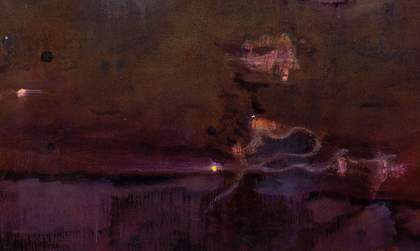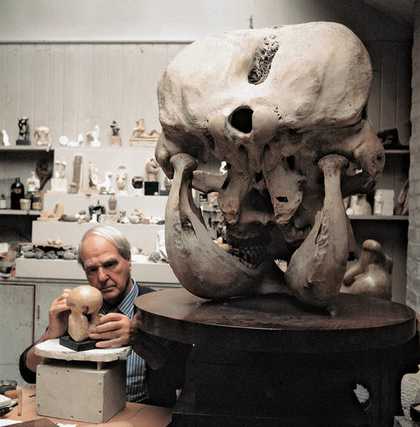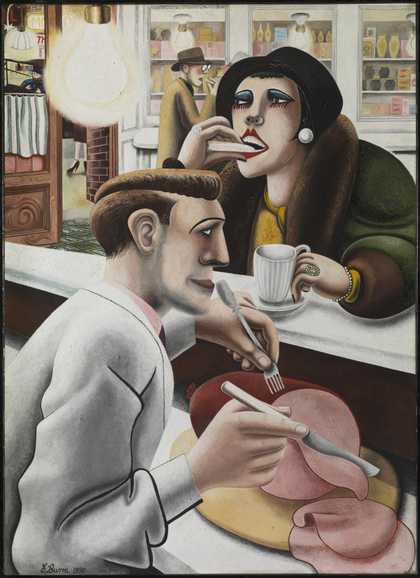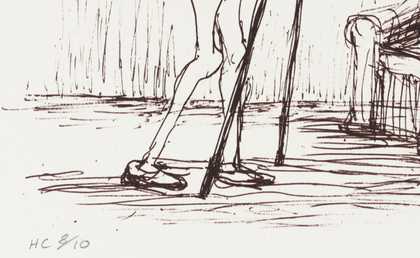
Henry Moore, The Pantaloon (detail) 1982, lithograph on paper, 26.7 x 20.6 cm
© The Henry Moore Foundation. All Rights Reserved. Courtesy Tate Photography
This moving Henry Moore lithograph is explicitly linked, in the artist’s hand, to Shakespeare’s ‘Seven Ages of Man’ speech from As You Like It.
It is a haunting, almost marginal, sketch that depicts the ‘shrunk shanks’, wispy hair and bald pate of the archetypal old man. The slippered pantaloon’s perilous twin walking sticks also remind me of the hours I’ve lately spent around English hospices researching my new book, Every Third Thought.
Patients who become reconciled, as many are, to death and dying can find hospices to be uplifting places: full of joy, acceptance and tranquillity – a final harbour for the solitude and delirium of the inevitable endgame.
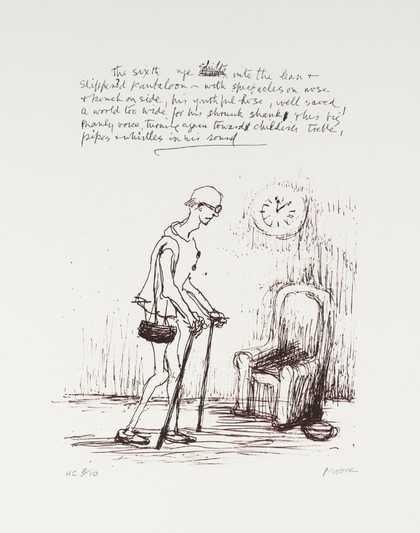
Henry Moore, The Pantaloon, 1982, lithograph on paper, 26.7 x 20.6 cm
© The Henry Moore Foundation. All Rights Reserved. Courtesy Tate Photography
The French philosopher Montaigne, a great writer on death and dying, says that ‘to practise death is to practise freedom’. Having spent the past two years interrogating this subject for myself, I have come to the conclusion that Montaigne is right: ‘He who should teach men to die would at the same time teach them to live.’
People at the end of life can have a surprisingly rich kind of existence. The artist’s vision acknowledges the tender frailty of senescence, and also the suggestion that some quality of life can be sustained to the end. Moore’s pantaloon may be in the antechamber to eternity, but he has a nifty pair of slippers and I bet they feel good when he slips them on to cross over to his armchair, or to climb into the bed in which, probably, he will soon pass away.
The Pantaloon was presented to Tate by the Henry Moore Foundation in 1986.
Robert McCrum is a writer and the Associate Editor of the Observer. His book Every Third Thought is published by Picador.

